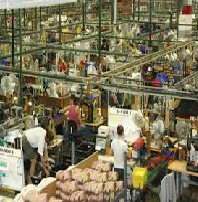Analyzing a Passage from The Division of Labor in Society Durkheim in The Division of Labor in Society writes about ìthe forced division of laborî as a ìabnormal form. î He writes:

ìWe may, therefore, state that the division of labor only produces solidarity if it is spontaneous, and to the degree that it is spontaneous. But spontaneity must mean not simply the absence of any deliberate, formal type of violence, but of anything that may hamper, even indirectly, the free unfolding of the social force each individual contains within himself. It not only supposes that individuals are not consigned forcibly to performing certain determined functions, but that no obstacle whatsoever prevents them from occupying within the ranks of society a position commensurate to their abilities. In short, labor only divides up spontaneously if society is constituted in such a way that social inequalities express precisely natural inequalities. It is a necessary and sufficient condition for these inequalities neither to be emphasized nor played down through some external cause.”
In this essay, first explain the meaning of this passage: what does Durkheim mean by social inequality (i.e., how is it different from natural inequality?)? Why does social inequality compromise organic solidarity? What is the relation of spontaneity to organic solidarity? Why does Durkheim describe the ìfree unfolding of the social forceî of each individual as a synonym for spontaneity?
Analyzing a Passage from The Division of Labor
Second, consider the implications of Durkheim describing non-spontaneous inequality as an expression of ìthe forced division of labor,î as a ìabnormal formî of the division of labor. Is all inequality, for him, incompatible with organic solidarity, or only a certain kind of inequality? Stated differently, for Durkheim, is organic solidarity possible with social inequalities? Why is solving the problem of social inequality necessary for the achievement of organic solidarity?
Finally, contrast Durkheimís understanding of social inequality (or inequalities) with Marxís. Of what consequence is it that Durkheim emphasizes the problem of solidarity to describe modern society while Marx emphasizes class struggle? Both Marx and Durkheim are critical of contemporary capitalism and the inequalities that characterize modern society. Are they, therefore, in agreement concerning the possibility of social and political stability and/or political and social reform in a modern capitalist society? Explain your answer, using quotes from the text for both Durkheim and Marx, where appropriate. For Marx, is spontaneity possible in a capitalist society?
The paper needs to be 4 – 5 pages in length, typed, double-spaced. CITE EVERYTHING.
Analyzing a Passage from The Division of Labor Readings
Karl Marx: Class Struggle and Social Structure
Reading assignment: The Communist Manifesto, pgs. 473-491
Karl Marx: Alienation and Dialectical History
Reading assignment: Introduction to the Marx-Engels Reader, pgs. xix-xxxviii; “On the Jewish Question,” pgs. 26-46
Karl Marx: The Engine of Social Change and the Economic Substructure
Reading assignment: The German Ideology, pgs. 146-163; 176-86;193-200
Emile Durkheim: Organic Solidarity and Modern Society
Reading assignment: The Division of Labor
Emile Durkheim: The Abnormal Forms of Social Life
Reading assignment: The Division of Labor




